The role of mayor takes many forms across West Virginia.

Running a municipality of any size is a heroic job. Traffic, garbage pickup, zoning—it’s the on-the-ground stuff that makes our daily lives frustrating or enjoyable, and the people who run our cities hear every detail. Asked who runs a city, those of us who haven’t engaged in city politics might go straight to “the mayor,” but it’s a little more complicated than that.
The state’s 232 municipalities are organized by their charters around one of four structures established in state code. Our very largest cities—Charleston, Huntington, and Parkersburg—and some smaller ones use a “strong mayor” form of government. The mayor is elected directly by the people and is not a member of council but is, rather, the city’s chief administrator; these mayors typically have veto power, prepare budgets, and can hire and fire independently.
While the mayor in a strong mayorcity may employ a city manager—Charleston, for example—this form is not to be confused with a second type of city organization: the “manager” or “council-manager” form used in Morgantown, Wheeling, and about 20 medium-sized cities across the state. In a manager-type city, council chooses a mayor from among themselves and hires a city manager to serve as chief administrator. The mayor serves a more ceremonial and inspirational role. In the “manager-mayor” variant used, for example, in Weston and Fayetteville, the mayor is elected directly by the people and may have a little more authority. Finally, in a “mayor-council” government, common among smaller municipalities, the mayor is a member of council and typically has no veto power and little independent administrative authority.
So a mayor may truly be in charge. But depending on a municipality’s form of government, he or she may serve more as the face of council while sharing power with it, and may operate in tandem with a city manager. And for a given city over time, the balance of authority may shift within the bounds of charter based on individual personalities and skills. The only way to know how your city is organized is to do the research. We asked some of West Virginia’s mayors about their experience running our municipalities.
 Bath Mayor
Bath Mayor
Susan Webster
- Mayor since: 1996
- Municipal organization: Mayor-council. The mayor is elected directly by the people to a two-year term and is one member of the five-member common council.
- Other employment: Been in small business all her life. Manages properties and owns a car dealership with her husband.
How did you come into the position of mayor? There were some issues in town in 1993 and I had some fairly strong opinions so I put my name on the ballot for council and got elected. I ran for recorder and vice mayor in 1995, and then the mayor resigned in ’96 so I became acting mayor. Council voted later that year to make me the actual mayor. We had a couple floods at the end of that year so I learned a lot quickly about how to handle emergencies.
On pay: A few years ago, when the economy dropped, our people in the community suffered. I told the employees we wouldn’t be able to give them raises and they may not all have liked it, but they understood. Later council said, “Let’s stand with them and take nothing ourselves.” I’m not paid and I’m fine with that. This is a labor of love.
Proudest accomplishments: A lot of things are coming to fruition. This town was established in 1776 and the streets are narrow so we’ve had difficulty doing waterworks repairs, but this year we’ll have completed most of the pipe replacement. And phase three of our streetscape program will replace sidewalks and curbs and add new trees and benches. We also have four other big projects going on.
Most frustrating part of the job: People with negative attitudes.
On responsibility: Small town mayors are standing in the holes where the water main breaks with the guys digging. We’re out there when a building is burning down or there’s a truck accident or the second flood in a year is wiping out businesses. When things go right, you have to be magnanimous—everyone gets credit. When things go poorly you have to say, “I’m sorry, I take responsibility for that.”
Who she admires: So many. Terry Williams of Spencer is a good friend and has mentored me. John Manchester of Lewisburg is so enthusiastic. For strong leadership, Danny Jones in Charleston.
 Fayetteville Mayor
Fayetteville Mayor
James Akers
- Mayor since: 2004
- Municipal organization: Manager-mayor. The mayor is elected directly by the people to a four-year term.
- Past employment: Retired from the U.S. Air Force and from Prudential Insurance Company.
What are your responsibilities as mayor in a manager-mayor municipality? My position is full-time. I am in charge of the police department, and the chief comes right under me, and I oversee all of the everyday operations of the town. I don’t have veto authority over council; I do have authority to hire and fire the police chief and city manager.
Proudest accomplishments: We’ve brought progress to town, through the Walmart and other stores at our Fayette Town Center, and we did it while keeping the historical character of our downtown intact. That’s brought us new revenues—when I first took office, we had a budget of about $700,000, and now we’re close to $3 million a year. Also, our water and sewer were in the red when I came in, so we negotiated with West Virginia American Water, and they took those on and improved our water systems.
Most frustrating part of the job: We don’t always have as much money coming in as we’d like, and it can be hard to get projects finished because of that. And some of the things I’d like to do, city council doesn’t approve of. They’re here to keep runaway mayors in line, and I appreciate that.
On communications from constituents: When you’re mayor, I don’t care if you’re at a social function or at church, people come up and complain about something. Or once in a while say something nice. Once, even, at a funeral, I was by the casket talking to the relatives and a woman tapped me on the shoulder and wanted to say something about the streets. It comes with the territory.
Who he admires: John Witt, long-time mayor of Fayetteville. Emmett Pugh did good things for Beckley, and Danny Jones has done a good job for Charleston. Mike Martin in Mount Hope.
We asked eight mayors who they admire among West Virginia mayors. Nearly every one mentioned Danny Jones of Charleston.
 Morgantown Mayor
Morgantown Mayor
Jenny Selin
- Mayor since: 2013
- Municipal organization: Council-manager. Mayor is chosen by council members from among themselves; city manager is the chief administrator.
- Other employment: Maintains her credentials as a professional mediator and serves as part-time coordinator of West Virginia University’s Community Design Team.
How did you come to be mayor? I served on the Planning Commission and then ran for council and was elected in 2007. In the election of 2013, I and four others ran for council as a group, Morgantown Together, and we all won. I and one colleague were the most experienced on council and I stepped forward.
What is it like being mayor in a council-manager city, as opposed to being on council? The main difference is that I’m responsible for running meetings. I also attend many, many more meetings than I used to mornings and evenings and weekends to keep track of what’s going on regionally and in the city, to make sure there’s communication and responsiveness between all these organizations. It’s so easy for each person to move their own issues forward, but then as a group we might not have enough unified voice to get things done.
Do you consider the function of mayor in a council-manager city to be ceremonial?Traditionally the mayors in Morgantown have not let the fact of our form of city government hinder them from getting things done. And I think this form of government works for Morgantown, as long as we’re all working together. I appreciate the stability of having a city manager who is looking after day-to-day, administrative concerns—I enjoy the policymaking role, really thinking about what can put our city forward and how we can best get people working together.
Who she admires among mayors: I’ve really admired our particular line of mayors. Take Florence Merow, Charlene Marshall, certainly Frank Scafella, Ron Justice, and Bill Byrne, and Jim Manilla. We have had people who all had very different styles, but they all were effective. It’s been a real education watching each of them operate.
 Huntington Mayor
Huntington Mayor
Steve Williams
- Mayor since: 2013
- Municipal organization: Strong mayor. The mayor is elected directly by the people to a four-year term.
- Former employment: Was in Huntington city administration in the 1980s then a delegate from Cabell and Wayne counties, and had a career in investment banking.
On Huntington’s switch in 1985 from the manager to the strong mayor form of government: I was city manager at the time. The city languished in the 1970s and ’80s and a lot of people felt it was because we didn’t have an elected mayor, a strong political voice. A charter review board built a charter around the strong mayor plan. It’s been a mixed bag. “Strong mayor” doesn’t necessarily define the person—we’ve had some who weren’t so strong or skilled. We need professionals running the city and we have that now.
What is your role as mayor in a strong-mayor city? I’m essentially the CEO of the city; our director of administration is the COO. My role is to articulate a vision and build consensus around it. It’s to build an administration of professionals who can do the job in a different way than anybody else in the country and get people looking at us.
What is your vision for the city? We’re not competing with Charleston. We’re competing with Louisville, Pittsburgh, Chicago—we’re competing on the world stage. But if we’re going to catch up, we’ve got to expect more out of ourselves, demand a higher level of performance.
What has surprised you most about the job of mayor? My fear was that people wouldn’t accept the idea that Huntington can compete, but they’ve started to embrace that in town. People are drawn to success and confidence. We’re developing that here.
What do people need to understand about the role of mayor? That mayors can only suggest—others in the community have to make it happen.
On home rule: One thing I say to legislators: If you want to run my city, run for mayor. Otherwise, leave it up to us.
Who he admires: Danny Jones in Charleston is a dear confidant and friend. Andy McKenzie in Wheeling and I share careers and we have a lot in common. Former Huntington mayors Bobby Nelson and Jean Dean. And Greg Fischer of Louisville is who I seek to emulate.
Written by Pam Kasey


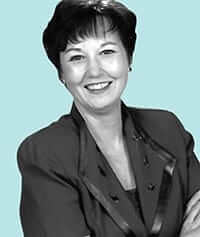 Bath Mayor
Bath Mayor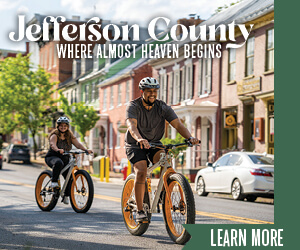
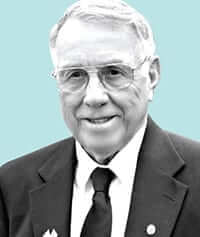 Fayetteville Mayor
Fayetteville Mayor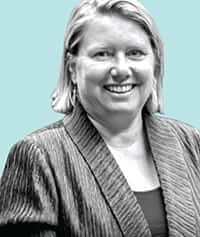 Morgantown Mayor
Morgantown Mayor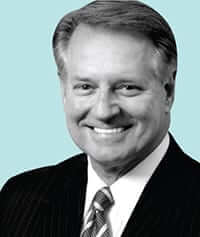 Huntington Mayor
Huntington Mayor








Leave a Reply